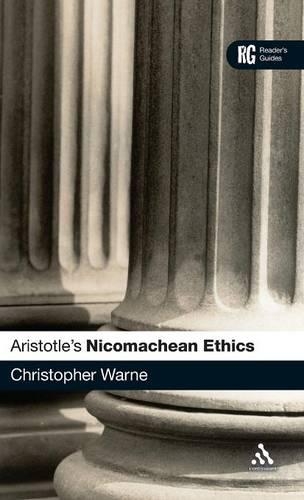
Aristotle's 'Nicomachean Ethics': A Reader's Guide
(Hardback)
Available Formats
Publishing Details
Aristotle's 'Nicomachean Ethics': A Reader's Guide
By (Author) Christopher Warne
Bloomsbury Publishing PLC
Continuum International Publishing Group Ltd.
10th October 2006
United Kingdom
Classifications
Tertiary Education
Non Fiction
Ancient Greek and Roman philosophy
171.3
Physical Properties
Hardback
166
Width 138mm, Height 216mm
300g
Description
Aristotle's Nicomachean Ethics, based on lectures that he gave in Athens in the fourth century BCE, is one of the most significant works of moral philosophy ever written. Aristotle, though of course influenced by the works of Plato, diverges sharply from his predecessor by making the practice, rather than the possession, of virtue the key to human happiness. By converting ethics from a theoretical to a practical science, and by introducing psychology into his study of behaviour, Aristotle both widened the field of moral philosophy and simultaneously made it more accessible to anyone who seeks an understanding of human nature. The theory of 'Virtue Ethics' Aristotle put forward still continues to be a major position of ethical thought to this day, his influence being strongly present in the work of Elizabeth Anscombe, Phillipa Foot and Alisdair McIntyre.
Author Bio
Christopher Warne teaches in the Department of Philosophy, Hills Road College, Cambridge, UK.
